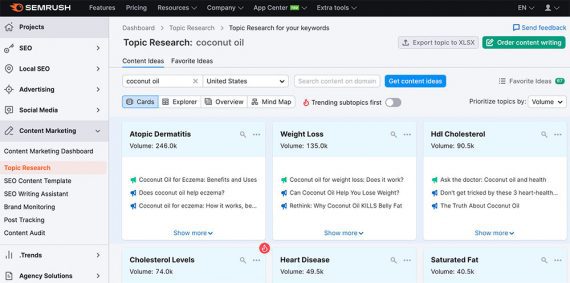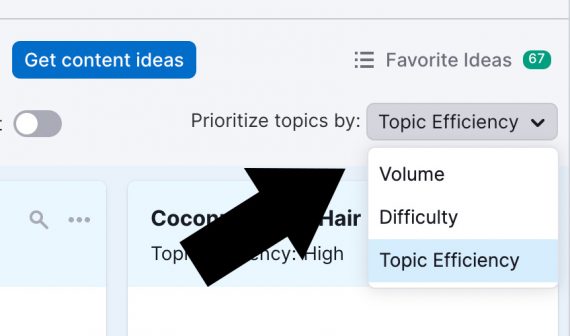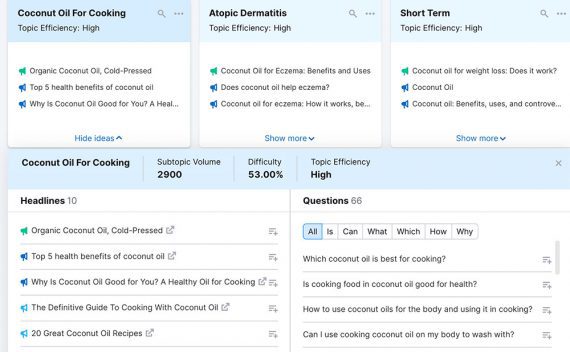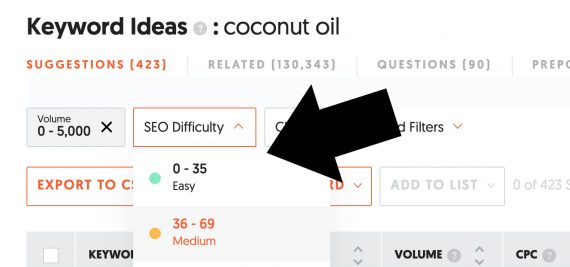Phrases with good search volume and relatively low keyword difficulty scores have the potential to drive lots of organic search traffic. These phrases can be an excellent source of content marketing ideas.
Content marketing and search engine optimization work hand-in-glove to provide useful, informative, or entertaining content that performs well in search.
Think of it this way. SEO and content marketing are together filling an information gap. Potential customers are querying Google or another search engine because they need something — perhaps a tutorial, information, or a product. And the content marketer is responding to that need.
Volume, Difficulty
There are many ways to generate content topic ideas. A good content marketer will use several. One such approach is to employ SEO tools to identify keyphrases with search potential — i.e., sufficient query volume to make the topic worthwhile and not so much that ranking is unlikely.
Thus:
- Discover key phrases used by thousands or tens of thousands of searchers each month.
- Next, narrow the potential topics by keyword difficulty as identified by the SEO tool.
Ahrefs
Ahrefs’ Keyword Explorer tool is a table-like interface that makes it easy to sort content ideas that deliver organic search traffic.
Let’s look at topics related to coconut oil, sorting in Keyword Explorer by volume and difficulty.
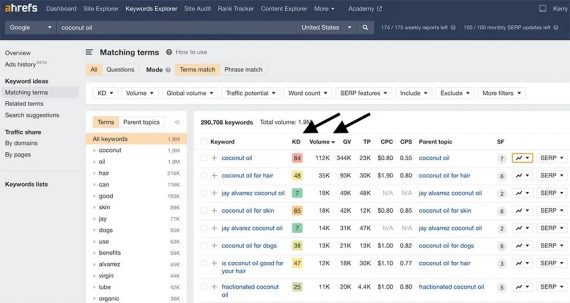
Ahrefs Keyword Explorer is a table-like interface that makes it easy to sort topic ideas. This “coconut oil” example is sorted by keyword difficulty (KD) and Volume.
Keyword Explorer has a few options for generating ideas.
- “Matching terms” will contain the phrase entered into the tool, e.g., “coconut oil.”
- “Related terms” will show ideas similar to the phrase.
- “Search suggestions” provide ideas that might appear in Google’s autocomplete.
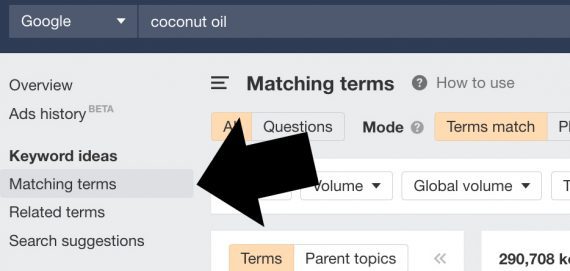
Ahrefs lets you decide the type of topic or keyphrase: Matching terms, Related terms, Search suggestions.
You can also consider all suggestions or just questions only, and adjust the match type:
- “Terms match” includes all of the words in the phrase, but in any order.
- “Phrase match” consists of all of the words in the phrase in precise order.

You can also adjust the match type and decide whether to focus on questions, which make for good topic ideas when answered.
I’ll use the keyword difficulty and volume filters to narrow the potential topics to phrases with a good chance of ranking on a Google search.
In Ahrefs, keyword difficulty is a non-linear, 100-point scale that estimates the likelihood of ranking in the top 10.
Setting the maximum keyword difficulty to 50 limits potential topic ideas to phrases where the top-ranking pages on Google’s SERPs probably have 80 – 90 referring (linking) domains.
I’ve set the volume filter to 5,000 searches per month, but it could be higher or lower depending on traffic goals.
With Ahrefs, you can also include ideas for Google’s SERP features. This can add interesting options but might require considering lower search volumes or more difficult phrases.
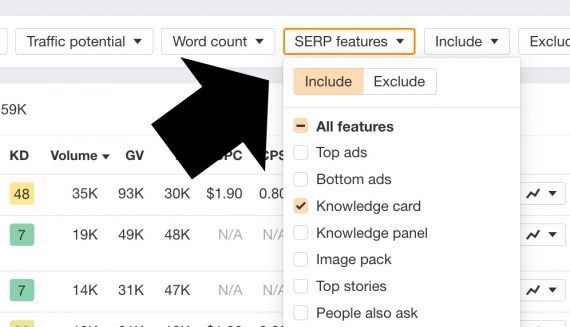
Ahrefs allows including Google’s SERP features in the list of topic ideas. Semrush and Ubersuggest offer the same.
Semrush
Semrush’s Topic Research tool includes similar benefits.
Here, I will view the topic ideas related to coconut oil in the “Card” view and set the priority to “Topic Efficiency.” This will sort the ideas by volume and difficulty.
With Semrush, identifying content topics with search potential is a drill-down process. Click a Card and get additional ideas, many in question format. You will also see the idea’s volume and difficulty estimate.
Ubersuggest
For my third example of identifying promising content topics, consider Ubersuggest. It is focused on keyword research for organic search. And like Ahrefs and Semrush, its keyword ideas are potential content marketing topics.

Ubersuggest is focused on SEO keyword research. Its keyword ideas are potential content marketing topics.
Once you enter a starting or seed term, such as “coconut oil,” head to the “Keyword Ideas” section.
Then filter topic ideas by monthly “Volume” and “SEO Difficulty.” Ubersuggest doesn’t describe how it measures difficulty. Nonetheless, it’s a good indicator of how much work is needed to rank.
When clicking on a topic idea, Ubersuggest estimates the number of backlinks you might need to break into the top 10.
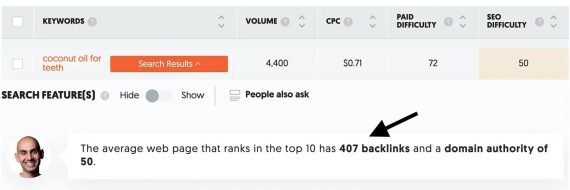
Ubersuggest estimates 407 backlinks are necessary to rank for “coconut oil for teeth.”
Just the Start
Ahrefs, Semrush, and Ubersuggest make it easy to identify content marketing topics that could drive traffic to your site.
Identifying these topics is just the start. Generate a list, check and verify each idea, and decide if the topic is relevant to your business and useful to potential customers.

